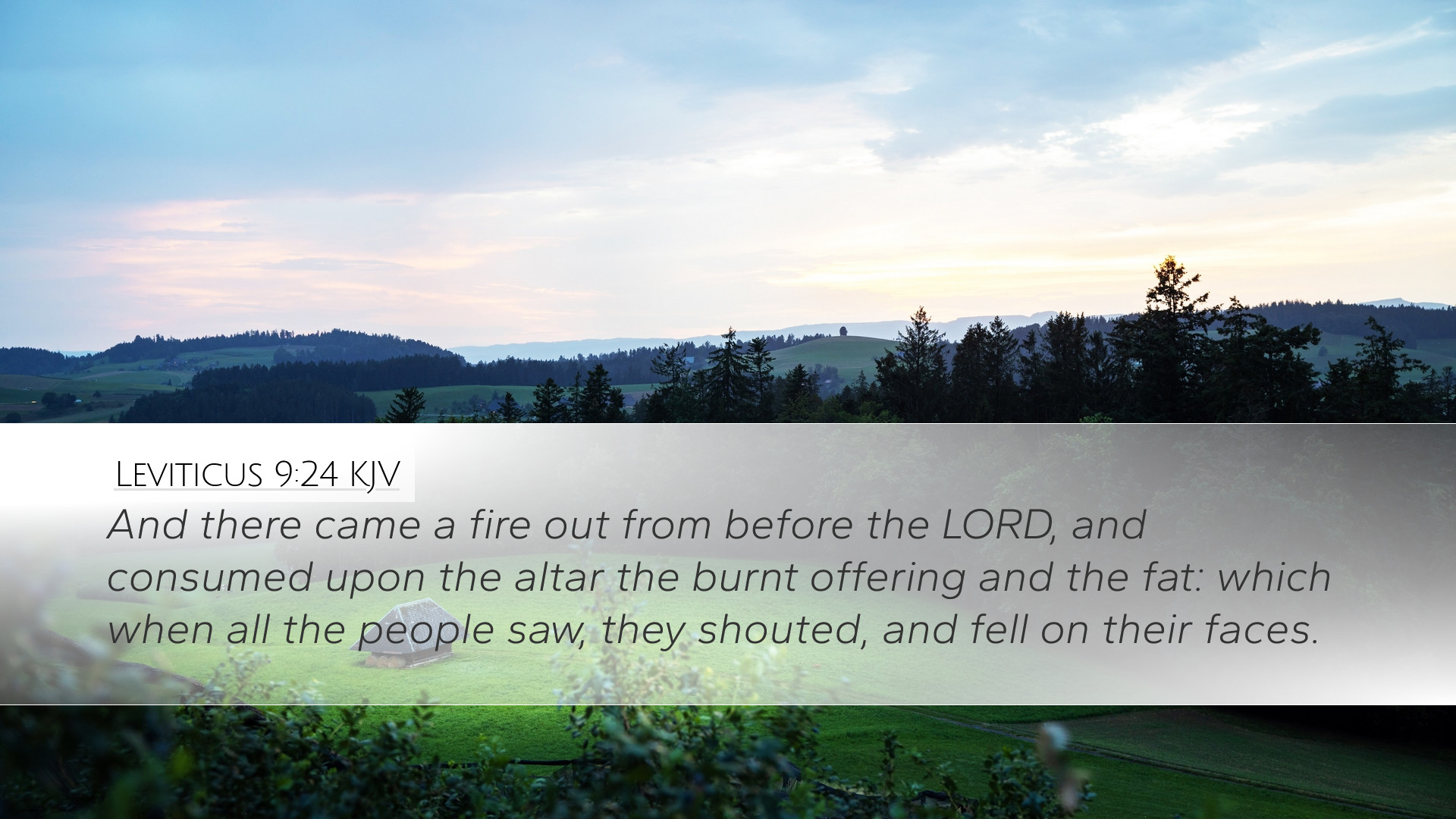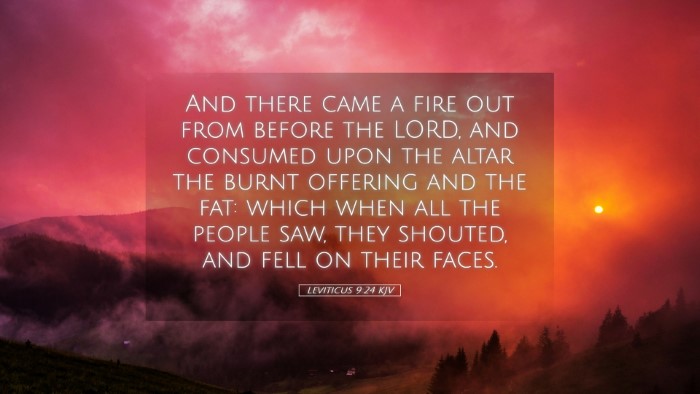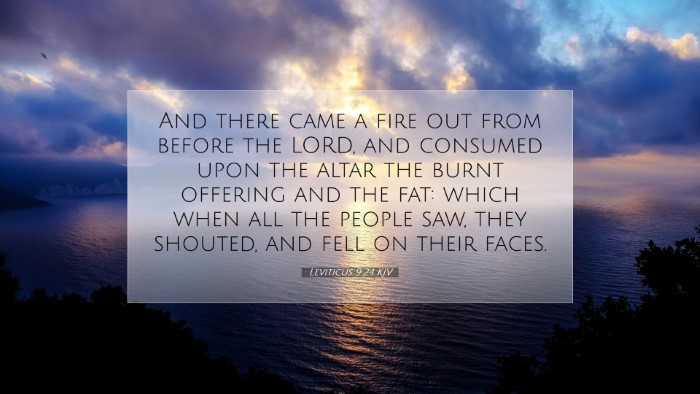Commentary on Leviticus 9:24
Leviticus 9:24 states, "And there came a fire out from before the Lord, and consumed upon the altar the burnt offering and the fat: which when all the people saw, they shouted, and fell on their faces." This verse is pivotal as it marks the culmination of the inaugural ministry of Aaron and his sons as priests. The fire, symbolizing God's presence and approval, plays a critical role in the aftermath of the offerings presented to Him. This commentary draws from the insights of Matthew Henry, Albert Barnes, and Adam Clarke, offering a comprehensive theological understanding suited for pastors, students, theologians, and Bible scholars.
Contextual Overview
The setting of Leviticus 9 revolves around the consecration of the priesthood and the establishment of the sacrificial system Israel was to follow. After the seven days of consecration, Aaron and his sons offer sacrifices, fulfilling God's commands. Understanding the significance of fire in this context is essential, as it represents divine acceptance and power.
Analysis of the Fire
The fire that consumed the offerings is a profound symbol of God's glory and approval. Matthew Henry notes that this divine fire was not of human origin but rather a miraculous manifestation from God Himself, signifying His acceptance of the sacrifices. This act underscores the seriousness of approaching God and the necessity of divine approval in worship.
Albert Barnes emphasizes that fire in the biblical narrative often represents God's judgment and presence. The consuming fire serves as a reminder that offerings must be pleasing to God, highlighting the sacredness of His holiness. The fire resulting from God's presence marked a new beginning for Israel, solidifying the priesthood and worship practices.
Reaction of the People
The reaction of the people, who shouted and fell on their faces, reflects their recognition of God's power and presence. Adam Clarke elucidates that the response of awe and reverence was appropriate, considering they witnessed the manifestation of God’s glory. Such reactions are consistent with biblical themes where divine encounters lead to worship and prostration as an acknowledgment of God’s supreme authority.
The act of falling on their faces signifies both humility and acknowledgment of God's sovereignty. Their joyous shouting indicates a profound sense of relief and acceptance; they were recognizing that God was indeed among them, validating their worship and sacrificial acts.
Theological Implications
This singular event encapsulates essential theological doctrines regarding worship, priesthood, and divine presence. Matthew Henry asserts that true worship is characterized by God’s acceptance and should be approached with a sense of humility and reverence. The initial acceptance of Aaron’s priestly service sets a precedent for the subsequent worship practices of Israel.
Albert Barnes reminds us of the necessity for divine fire in our spiritual lives; it emphasizes that without God’s presence, our sacrifices and offerings may lack value. The fire's consuming action stresses the principle that our lives are to be filled with divine energy, exemplifying the ultimate sacrifice of Jesus Christ and how believers today are to present themselves as living sacrifices.
Conclusion
Leviticus 9:24 serves as a powerful reminder of the reverence due to the Almighty in worship. The consuming fire from God not only affirmed the legitimacy of Aaron's priesthood but also established the framework for Israel's worship practices. As scholars and leaders in the faith, it is crucial to reflect on the components of worship, the authority of the priesthood, and the all-encompassing holiness of God that demands both respect and submission.
Understanding this verse can enrich our worship experiences today, grounding them in reverence, humility, and recognizing the transformative power of God’s presence among His people. The importance of God's fire continues to echo through the ages, urging believers to pursue genuine encounters with the divine in their contemporary contexts.


